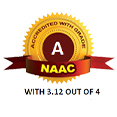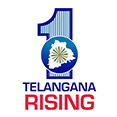RESEARCH PROMOTION POLICY
1. PREAMBLE
Dr.B.R.Ambedkar Open University, committed to the cause research as a leading public institution in distance learning and research by proactively furthering a culture of research,among faculty,research scholars, academic associates, and students.This commitment to furthering research will draw on the vast experience in ODL and post-graduate education, providing opportunities to enhance its reputation, globally, among leading institutions offering open distance education.
The distinguishing feature of this university is to promote systemic research apart from discipline specific research. Dr. B. R. Ambedkar Open University has been in the service of higher education for the last forty years and had established an evaluation research wing right fromits inception. Subsequently, the evaluation research wing was made into a Directorate called GRADE (Prof. G. Ram Reddy Research Academy of Distance Education) which is named after the founder Vice-Chancellor of the University.GRADE has been instrumental in promoting research on different aspects of the university functioning and system-based research on Distance Education.
To support research activities, the University provides infrastructure,which includes advanced computing lab, science lab, instrumentation lab etc. A very large library of published work, much of which appearing in reputed journals, books, as well as in the form of diverse outputs, form the fulcrum of ODL activities at the University.
The University recognizes that research scholarship outputs are wide ranging and recognizes that through research activities the faculty, students and all others involved are the agents of change and excellence.
2. PURPOSE
The research promotion policy envisages the creation of a congenial atmosphere for the faculty and researchers and to enhancthe research output of the Institution. The policy framework ensures credibility of the research by adhering to the Rules and Regulations prescribed for conduct of research by the University Grants Commission, the apex body of higher education in India.
3. OBJECTIVES
The objectives of the Research Promotion Policy are to:
-
Promote a culture of research among faculty, research scholars, academic associates
-
Provide the required infrastructure such as laboratories, reference library, Internet connectivity, computers, printers and software to support research
-
Implement equal opportunities and social justice goals laid down in the constitution and policies of the Government of India
-
Ensure academic integrity and academic freedom of research scholars and faculty
-
Promote collaboration and consultancy with a view to bring interdisciplinarity in research and promote partnerships with other research organizations of repute.
-
Facilitate funding for research in the form of fellowships, publication grants etc
-
Encourage research scholars and faculty to produce publications in quality journals indexed in Scopus / Web of Science or peer reviewed journals with good impact factor
-
Provide guidelines for ethical code of conduct for Research
4. CONDUCT OF RESEARCH
-
The University seeks to promote, support,and regulate all research activities involving faculty,research scholars and students. More specifically, the University, while expecting professional self-regulation, also expects all researchers always adhere to principles of ethical conduct of research, which include:
-
Will review and seek approvals of research proposals through competent authorities appointed by the university including Research Coordinator and the advisory committee, institutional Ethics Committee and safety committee and other relevant committees that may be constituted. Besides seeking these approvals,guidelines issued by the University from time to time will also need to be complied with,which includes:Guidelines for externally-funded project implementation, undertaking of consultancy services / project, appointment of project staff, Guidelines for fixing minimum remuneration for project staff. Will safeguard the rights, privacy, and confidentiality of participants in research;
-
Will periodically update with the reviewed,revised,and recommended best practices in research.
-
All researchers are to undertake research activities in accordance to University policies and rules.
- The University’s priority shall be to promote research on Open and Distance Learning and also interdisciplinary research that have contemporary relevance across the disciplines. University shall promote research pertaining to –
- Systemic Research – Conduct research studies on various aspects such as - use of Audio-Visual Programmes by the learners; Learner satisfaction regarding implementation of the CBCS; Compile Success Stories of the learners; Evaluation of the Counselling (both online and offline) provided to the learners etc.
- Research on Distance Education – conduct research on the developments and directions of change taking place in Open and Distance Learning keeping pace with the National and Global research in the field.
- Disciplinary Research – Conduct research in various subjects leading to the award of Degree “Doctorate in Philosophy”. Faculty of Arts, Faculty of Sciences, Faculty of Social Sciences, Faculty of Commerce & Management, Faculty of Education shall notify the eligible guides, number of vacancies and follow the research guidelines adopted by the university for the conduct of research.
- Research in Developmental Studies - Development studies (DS) is an important field of study for anyone looking forward to working in the social sector. It encompasses a political, social, economic and technological outlook to issues faced by developing countries. Dr.B.R. Ambedkar Open University, committed to the cause of providing educational opportunities to the underprivileged sections of the society also shall focus on the developmental studies. The university shall conduct research with focus on developmental studies and for this purpose may collaborate with other National Organizations.
6. RESEARCH FUNDING
6.1 Support for Researchers holding Fellowships from UGC, ICSSR and other National bodies
The University shall from time to time notify the announcements regarding availability of research grants to the faculty and researchers.
The University shall fulfil all the requirements such as creating PFMS accounts for depositing the research grant obtained by the Researcher, release of research grants to the scholars on time, submission of Utilization certificates and take all measures to facilitate research progress. University shall maintain a record of all the grants awarded / research completed utilizing such grants.
6.2 Funding for Research Projects, Seminars, Conferences& Workshops
University shall explore the possibility of sponsoring minor and major research projects. Apart from the projects obtained by the faculty from UGC and other sponsoring bodies, University shall allocate special grant for the research on Distance Education with particular focus on Online Education.
6.3 Grants for Organizing Seminars / Workshop / Conferences
University shall encourage the faculty to organize seminars and conferences of Local, Regional, National and International. The University shall provide a matching grant to the department/s organizing the seminar (National & International). The following conditions shall be met for a matching grant.
The Faculty seeking a matching grant should provide evidence of a grant from any other external agency for organizing the seminar.
The Faculty should work out and present the probable expenditure details for the seminar / workshop / conference Submit a detailed proposal to the university, at least 2 months in advance.
The proposal should highlight the importance of the seminar, expected outcomes, a tentative program and names of resource persons. The proposal should indicate the sources from which funding is expected and the need for a matching grant. The proposal should also include the organizational committee members and the credentials of the organizer to conduct the seminar / workshop / conference.
The University should provide all the proformas required for release of the matching grant and the Utilization certificate and shall maintain a record of the grants provided in a particular year.
6.4 Grants for Participation inSeminars / Workshop / Conferences
To encourage participation of the faculty in National and International Seminars and conferences, the university shall provide incentives in the form of travel grant, Dearness Allowance, grant to meet the Registration and hospitality. The university shall decide to provide full or partial grant depending on the availability of the funds, number of faculty members applying for the grant and fulfilment of the eligibility criteria.
The following criteria may be considered for allocation of the grants.
-
Faculty seeking the grant should have published at least one research paper in Scopus Indexed / WOS/ICI journals in the same or preceding year in order to be entitled for Seminar participation grant
-
Faculty seeking the grant should submit the accepted paper 2 months in advance for review by the expert committee. The expert committee should comprise two external experts in the relevant discipline, who will review the manuscript keeping in view the level of the seminar, originality of research, methodology and findings of the study and recommend the article for presentation.
-
The faculty receiving the grant should share their experiences of seminar participation before the university academic faculty and researchers.
6.5 Other Incentives for Research
6.5.1 Publication Grant
To promote quality publications by the faculty and researchers, the University shall extend support by providing publications charges (up to 50%) for papers accepted for publication by a Scopus / WOS / UGC-CARElisted journal / Book published with a reputed publisher with ISBN. The upper limit of the publication shall not exceed Rs. 2000/ per paper, subject to the condition that the work must have implications for the development of subject knowledge and the university
6.5.2 Grant for Staff Exchange Programmes
University shall facilitate exchange of expertise with other International / National /State Open Universities. The faculty visiting the university shall be given a stipend to the extent of Rs. 25,000/ per month and accommodation in the University Guest House and all the research facilities. The maximum period of Research will be 6 months from the date of commencement of the program. Number of faculty exchanges may be decided by the university depending on the funds and other requirements.The consenting institutions should sign an agreement laying down mutually- agreed conditions.
7. RESEARCH COLLABORATION & CONSULTANCY
7.1 Research Collaboration
Dr.B.R.Ambedkar Open University strongly believes in sharing of resources, expertise, research and innovation and knowledge acquired through research for the benefit of the society. This is achieved by taking up research in collaboration with other National / State level organizations and institutions such as CESS (Centre for Economic and Social Studies) involved in research in the areas of research as mentioned in section 5 of this policy. In order to foster collaboration with other Open Universities, it is also envisaged to provide faculty exchange programmes.
7.2 Research Consultancy
Research and Consultancy go hand- in- hand. University faculty who are not only qualified in terms of their subject specialization but also possess rich experience in distance education can provide consultancy to other institutions and organizations. The areas of consultancy would include Distance Education, Online Education, Skill Development, research methodology apart from other disciplinary and contemporary topics of relevance.
8. INNOVATIONS
The University shall establish a Centre for Innovations and Research Excellence to promote innovations by the faculty, researchers and learners.
The center will function with the following objectives.
-
To act as a catalyst for innovators and to create a vibrant innovation environment in the university and surrounding regions
-
To report and publish innovations by the faculty, researchers, learners and Alumni of the University
-
To strengthen linkages with other institutes, incubators for innovation ecosystem in the region.
-
To act as a network between academic, R & D institutions, industries and financial institutions.
9. PUBLICATION GUIDELINES AND RESEARCH ETHICS
Researchers, authors, editors and publishers are the important stakeholders in the process of scholarly communication. They have an ethical obligation with regard to publication and dissemination of research findings. Researchers are accountable for the completeness and accuracy of their reports. Researchers must show-case their research for dissemination of ideas and inventions and at the same time should adhere to ethical principles.
Some important publication ethics for authors and researchers are laid down as follows:
1. Approval and Consent
Researchers should document the approval and consent obtained from the subjects involved in the research study and from whom the data for the study has been collected
2. Data Accuracy, Falsification and Fabrication
Researchers must double check the data for accuracy before publication. Manipulation of data, process and equipment should be eliminated.
3. Plagiarism and Self Plagiarism
There should be a mechanism to check the extent of Plagiarism in the publications. Checks should be conducted to what extent material has been reproduced with respect to data, tables and figures, checking acknowledgements and citations etc. University shall provide for plagiarism software and checking the research publications for plagiarism before publication. Theses should enclose the certificate of plagiarism check before the submission process.
4.Submission of research
A declaration should be submitted by the researcher stating that the publication either entirely or in part has not been submitted elsewhere or has been published earlier in other journals / books. Publishing the same text in two different journals also should not be encouraged.
5. Ethics of Authorship
Due credit should be given to the collaborating authors. Co-authors should be informed about the details of publication and should agree to be held responsible for the content and data interpretation.
6. Funding
Researchers should give due credits to the funding agencies and declare the nature of funding received for research and publication.
7. Conflict of Interest
-
In case of any kind of conflicts arising in the research, publication, funding they should be referred to the Publication and Ethics Committee.
-
The University shall have a Publication and Ethics Committee comprising the Chairperson, Academic Deans of all the faculties, Senior Professors from different faculties, Director GRADE and others members. The Committee shall hold meetings every quarter to discuss various ethical issues involved in research and publication.
Monitoring and Review Committee
-
Director, Academic
-
Office Incharge, UGC-DEB
-
Director, CIQA
-
Dean, Faculty of Arts
-
Dean, Faculty of Commerce
-
Dean, Faculty of Education
-
Dean, Faculty of Sciences
-
Dean, Faculty of Social Sciences
-
Deputy Director, Learning Support Services



